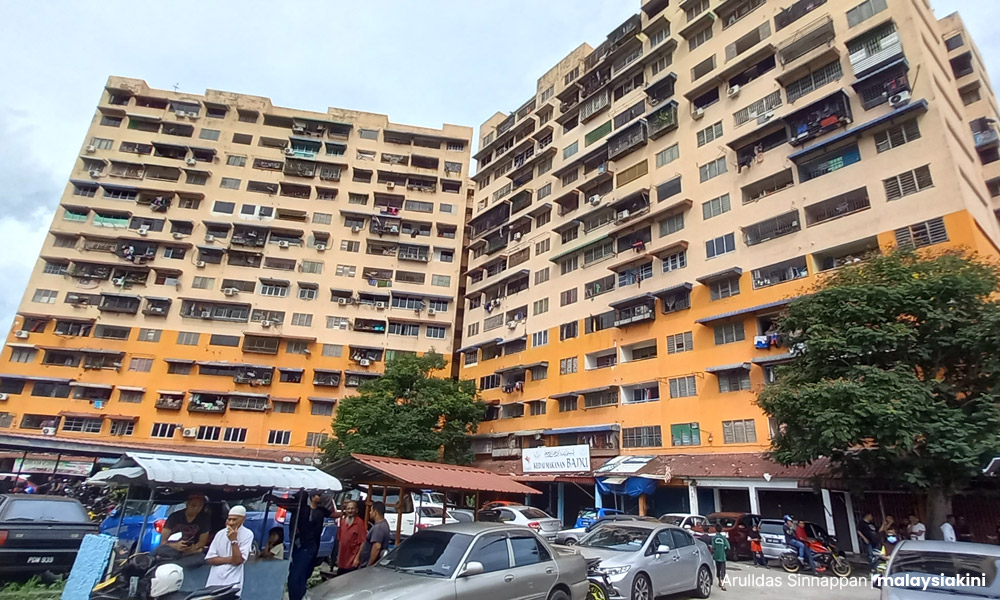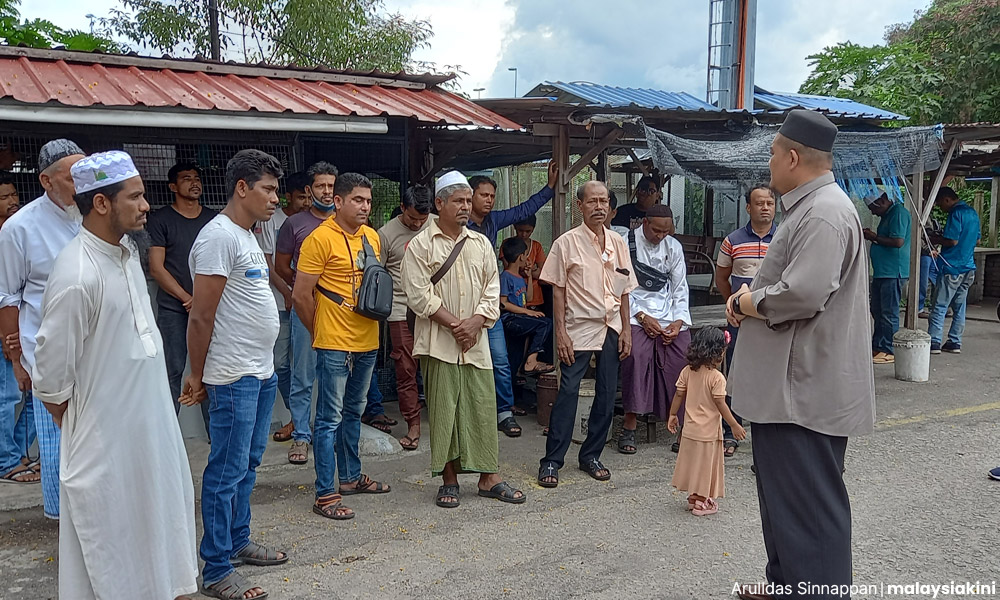A tense two-hour meeting between local residents and Rohingya refugees took place at the Sri Bagan low-cost flats in Bagan Dalam, Penang, yesterday.
At the heart of the meeting was an attempt to stop the refugees from allegedly taking opportunities and facilities away from locals and breaking the law.
The meeting at the flats’ parking lot had been demanded by local NGOs Penang Surplus Welfare Association (Surplus) and Raudatul Huda Training Centre, who corralled the refugees who were staying at the flats to come down.
Speaking with a raised voice, Surplus chairperson Mohd Sophian Mohd Zain grilled the Rohingyas - who said they were registered with the UN High Commissioner for Refugees (UNHCR) - about their current state.
He asked them whether they had purchased and driven cars and motorcycles illegally, as well as ran businesses or worked - which he claimed the UNHCR card did not allow them to do.
For each question, a handful of the 40 Rohingyas present would raise their hands when Mohd Sophian pressed them for an answer.
“Whose names did you use to buy the motorcycles?” he asked, while flanked by about 40 residents
“Local names right? You know you can’t do that right?” he added.

He also alleged that for every low-cost flat the Rohinyas rent, one Malaysian household would be denied housing.
However, he did not address how the Rohingyas were able to rent out the units meant for underprivileged Malaysians.
Mohd Sophian also chastised the locals for becoming “kuli” (slaves) to the Rohingyas by allowing them to use local names to buy vehicles and run businesses.
The incident came weeks after UNHCR said some 50 Rohingya refugees were chased out of their homes in a village in Penaga, Penang, after living there for about 10 years.
The UN refugee agency said the refugees’ neighbours said they had no issues with the community, who had also learned to converse in Malay and the local dialect.
It added such conflicts could be better resolved through inter-community dialogue and was in talks with local elected representatives to ensure such incidents do not recur.
Empathy amid rebuke
However, Mohd Sophian said UNHCR should be held responsible for the tensions between locals and refugees.
Despite his stern rebuke, he told the Rohingya community in Sri Bagan flats that he empathised with their struggles of having to make ends meet without the right to work in this country.
“You can’t work, right? But you have to work, without work, you can’t eat.
“You have to do business, right? If not, you will not have money - no money, no food means you can’t pay rent, right?
“This is what we want to help you with,” he said, calling on the government, local representatives and UNHCR to step in to address these issues.
He said UNHCR should be providing refugees monthly financial support in order to sustain themselves, and also to send their children to school.
He also said it does not make sense to allow refugees to remain in the country but not allow them to work.

Although it allows UNHCR to operate on its shores, Malaysia is not a signatory of the UN convention recognising the rights of refugees.
Instead, refugees are treated as undocumented migrants in Malaysia, without basic human rights or permission to work.
Ultimately, however, Mohd Sophian said the best solution is for the UNHCR to fast-track resettling Rohingyas to a third country.
Raudatul Huda chairperson Azmi Jaafar shared a similar sentiment.
“Our check showed that some refugees have been waiting about 30 years to attend the third country programme.
“The government and the UNHCR have to move fast to avoid social problems which could arise from the refugees,” he said.
He also alleged that the way things are now is unsustainable, as Rohingyas looking for work allegedly took away opportunities from locals such as school leavers and retirees.
For Myanmar Ethnic Rohingya Human Rights Organisation Malaysia (Merhrom) Penang committee member Chokkur Mohd Hussin, however, resettlement in a third country was not the most desirable option for his community.
Chokkur, 52, arrived in Malaysia about 30 years ago, when he was 19 years old. He now has a wife and four children who were born here.
“We want to go back to Myanmar if the UN could bring peace and harmony to my homeland. Why must I apply to go to the US under the UNHCR’s third-country resettlement programme?
“We pray to God to resolve our problems to return to our homeland,” he added. - Mkini




No comments:
Post a Comment
Note: Only a member of this blog may post a comment.